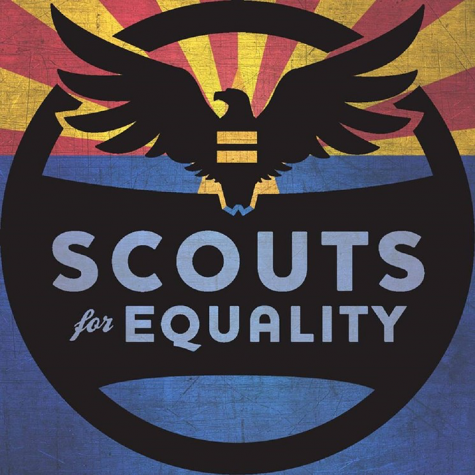Bigotry in Boy Scouts: A Valid Stereotype?
October 16, 2018
The epitome of leadership. Since the Boy Scouts’ inception in 1910, Boy Scouts have been honored the reputation of being a shining example of the leaders of tomorrow. However, within the last decade, they have been faced with backlash because of the fact that they traditionally uphold conservative ideals. First, it was that they didn’t accept people of a different creed than Christianity, then it was people who identified as homosexual or transgender. The recent controversy surrounding these said ideals is girls having the ability to join troops and attain the rank of Eagle. The second and latter ideals (being gay or a girl in scouting) is something that is still quite an issue in scouts. For example, in 2013, the Boy Scouts of America finally lifted the ban on openly gay scouts. Before then, you couldn’t make  Eagle unless you suppress who you really were. Although, this was a significant change in tides for the Boy Scouts, hazing continued and even started to become worse, which thus prompted companies that funded the scouts to back out. In essence, the reputation of acceptance in Boy Scouts is less than preferred. While some Scout Troops hold strict, conforming rules, many do not. There are numerous troops that accept any person, regardless of their religion, gender, race, sexual orientation, or any other aspect of one’s personal background. Don’t let the stereotypes hinder you from pursuing scouting. Find a troop that is embracing and join the community of hardworking and empathetic people that all follow the 12 points of the scout law (being trustworthy, loyal, helpful, friendly, courteous, kind, obedient, cheerful, thrifty, brave, clean, and reverent.) Together, we can not look at each other’s differences, but rather towards tomorrow. A future reaping with potential, in which we are tomorrow’s leaders.
Eagle unless you suppress who you really were. Although, this was a significant change in tides for the Boy Scouts, hazing continued and even started to become worse, which thus prompted companies that funded the scouts to back out. In essence, the reputation of acceptance in Boy Scouts is less than preferred. While some Scout Troops hold strict, conforming rules, many do not. There are numerous troops that accept any person, regardless of their religion, gender, race, sexual orientation, or any other aspect of one’s personal background. Don’t let the stereotypes hinder you from pursuing scouting. Find a troop that is embracing and join the community of hardworking and empathetic people that all follow the 12 points of the scout law (being trustworthy, loyal, helpful, friendly, courteous, kind, obedient, cheerful, thrifty, brave, clean, and reverent.) Together, we can not look at each other’s differences, but rather towards tomorrow. A future reaping with potential, in which we are tomorrow’s leaders.